
Kruger National Park: South Africa's Wildlife Gem
Kruger National Park is one of Africa's largest game reserves and is a must-visit destination for any nature lover. Spanning nearly 20,000 square kilometers, the park offers a unique opportunity to witness the Big Five—lions, leopards, rhinos, elephants, and buffaloes—in their natural habitat. The park is also home to hundreds of other species, including diverse birdlife, making it a paradise for bird watchers. The park's landscape is equally impressive, featuring everything from rolling hills to sprawling savannas and lush forests. Whether you choose to explore through a self-drive safari, guided tours, or walking safaris, each experience offers something unique and memorable. The park's well-maintained roads and ample signage make it easy to navigate, even for first-time visitors. Kruger National Park is not just about wildlife; it also offers cultural and historical experiences. You can visit ancient rock art sites and learn about the indigenous people who once lived in the area. Additionally, the park has several rest camps with various amenities, including accommodations, restaurants, and shops, ensuring a comfortable stay for visitors of all budgets.
Local tips in Kruger National Park
- Book your accommodations well in advance, especially during peak seasons.
- Early morning and late afternoon are the best times for wildlife viewing.
- Bring binoculars and a good camera for capturing wildlife and landscapes.
- Stay in your vehicle during self-drive safaris for safety.
- Follow all park rules and guidelines to ensure a safe and enjoyable visit.
Kruger National Park: South Africa's Wildlife Gem
Kruger National Park is one of Africa's largest game reserves and is a must-visit destination for any nature lover. Spanning nearly 20,000 square kilometers, the park offers a unique opportunity to witness the Big Five—lions, leopards, rhinos, elephants, and buffaloes—in their natural habitat. The park is also home to hundreds of other species, including diverse birdlife, making it a paradise for bird watchers. The park's landscape is equally impressive, featuring everything from rolling hills to sprawling savannas and lush forests. Whether you choose to explore through a self-drive safari, guided tours, or walking safaris, each experience offers something unique and memorable. The park's well-maintained roads and ample signage make it easy to navigate, even for first-time visitors. Kruger National Park is not just about wildlife; it also offers cultural and historical experiences. You can visit ancient rock art sites and learn about the indigenous people who once lived in the area. Additionally, the park has several rest camps with various amenities, including accommodations, restaurants, and shops, ensuring a comfortable stay for visitors of all budgets.
When is the best time to go to Kruger National Park?
Iconic landmarks you can’t miss
Bourke's Luck Potholes
Discover the breathtaking geological formations and stunning landscapes at Bourke's Luck Potholes in Blyde River Canyon Nature Reserve.
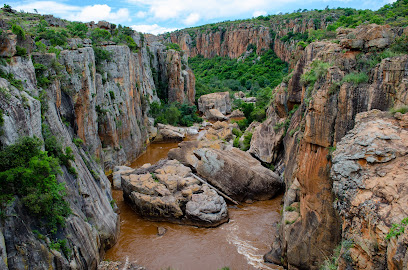
Sudwala Caves
Discover the ancient beauty of Sudwala Caves, a natural wonder near Nelspruit with stunning formations, engaging tours, and family-friendly attractions.
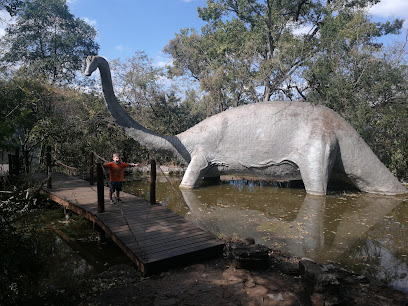
Lower Sabie Rest Camp
Discover the beauty of wildlife and nature at Lower Sabie Rest Camp in Kruger National Park, an unforgettable experience for all nature lovers.

Skukuza Rest Camp
Explore the wonders of Skukuza Rest Camp in Kruger National Park, where adventure and tranquility meet in South Africa's wildlife haven.
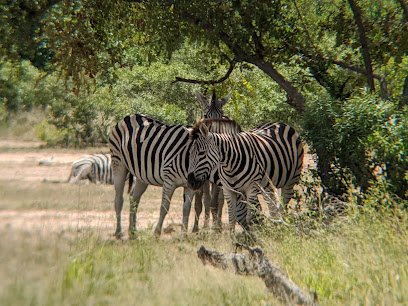
Crocodile Bridge Rest Camp
Experience the wild beauty of Kruger National Park at Crocodile Bridge Rest Camp, the ultimate campground for nature enthusiasts and adventurers.

Letaba Rest Camp
Discover the beauty of Kruger National Park at Letaba Rest Camp, where adventure meets tranquility in a wildlife paradise.
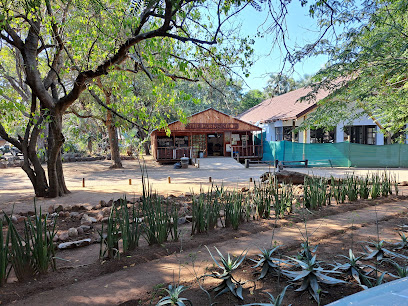
Paul Kruger Gate
Experience the ultimate wildlife adventure at Paul Kruger Gate, the gateway to Kruger National Park's breathtaking landscapes and diverse wildlife.
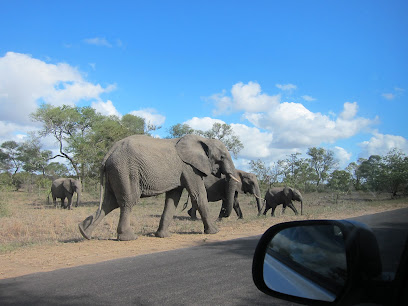
Malelane Gate @ Kruger National Park
Experience the thrill of wildlife encounters and breathtaking landscapes at Malelane Gate, your gateway to Kruger National Park's vibrant ecosystem.
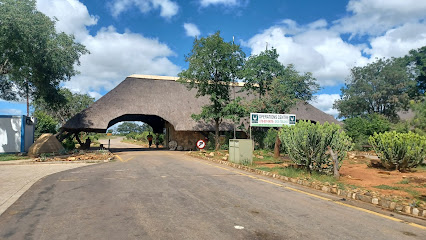
Kruger Gate Hotel
Discover luxury and adventure at Kruger Gate Hotel, your gateway to the wildlife wonders of Kruger National Park.
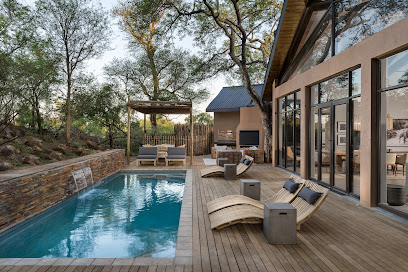
Mopani Rest Camp
Discover the serene beauty of Mopani Rest Camp in Kruger National Park, a perfect retreat for nature lovers and bird watchers alike.

Shingwedzi Rest Camp
Discover the tranquil beauty of Shingwedzi Rest Camp in Kruger National Park - a perfect getaway for wildlife enthusiasts and nature lovers.

Kruger Park Safaris
Experience the untamed beauty of Kruger National Park with Kruger Park Safaris, where adventure meets the heart of South Africa's wilderness.
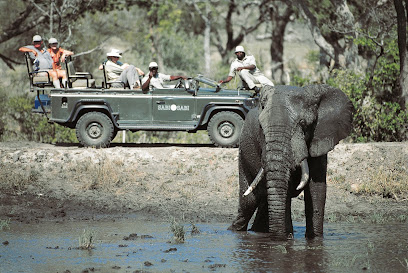
Orpen Rest Camp
Experience the wild beauty of South Africa at Orpen Rest Camp in Kruger National Park, a perfect lodging choice for nature lovers and wildlife enthusiasts.

Orpen Gate Kruger National Park (Reception)
Experience the raw beauty of nature at Orpen Gate, your gateway to the incredible wildlife of Kruger National Park.
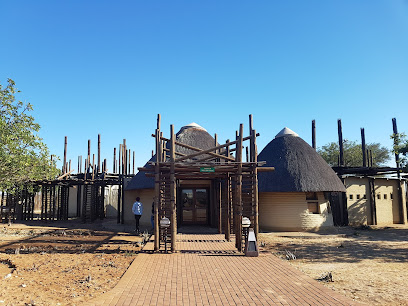
Manyeleti Game Reserve
Experience the wild wonders of Manyeleti Game Reserve, where the Big Five roam free in a pristine African landscape.
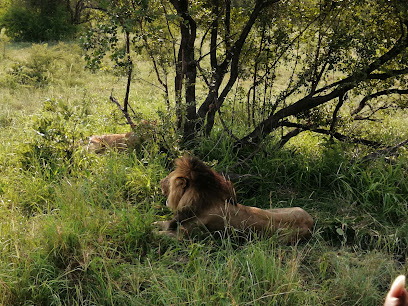
Unmissable attractions to see
Letaba Rest Camp
Experience the tranquility of Letaba Rest Camp, your gateway to the stunning wildlife and natural beauty of Kruger National Park.

Orpen Gate Kruger National Park (Reception)
Experience the thrill of wildlife encounters at Orpen Gate, the majestic entrance to Kruger National Park in South Africa.
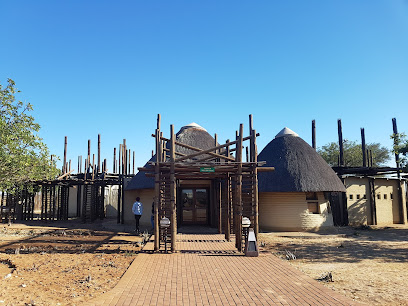
Timbavati Private Nature Reserve
Discover the magic of Timbavati Private Nature Reserve, where wildlife encounters and stunning landscapes await every adventurer.
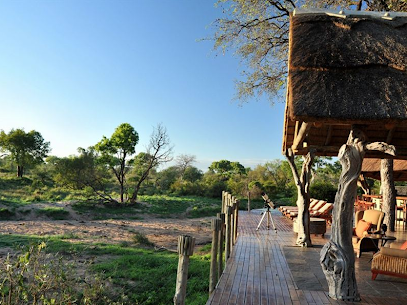
Mala Mala Game Reserve
Experience the thrill of the African bush at Mala Mala Game Reserve, where the Big Five roam freely in a breathtaking wilderness setting.
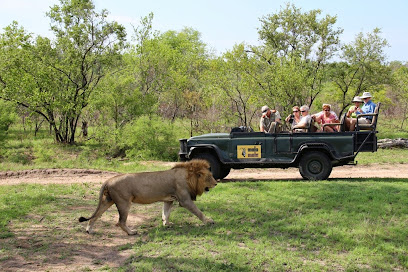
Mlondozi Picnic Site
Discover the tranquility of Mlondozi Picnic Site in Kruger Park, where nature and relaxation meet in a breathtaking setting.
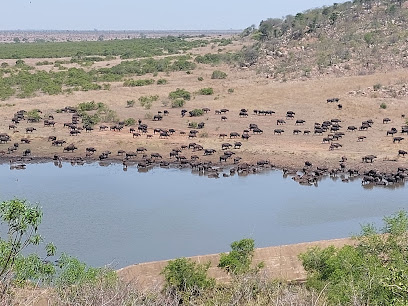
Manyeleti Game Reserve
Experience the magic of the wild at Manyeleti Game Reserve, where the Big Five roam free in a stunning natural setting.
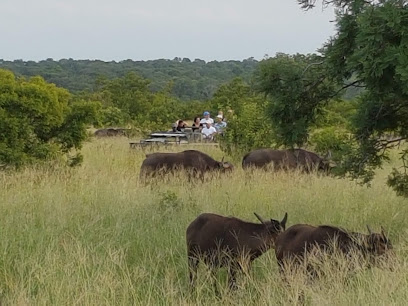
N' wanetsi Picnic Spot
Experience the serene beauty of N'wanetsi Picnic Spot in Kruger National Park, perfect for picnics and wildlife encounters.
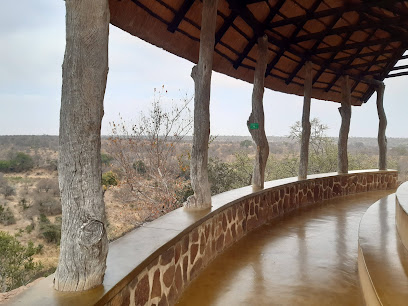
The Klaserie Private Nature Reserve
Explore Klaserie Private Nature Reserve: A stunning wildlife sanctuary in South Africa's Limpopo Province, offering unforgettable safari experiences and breathtaking landscapes.
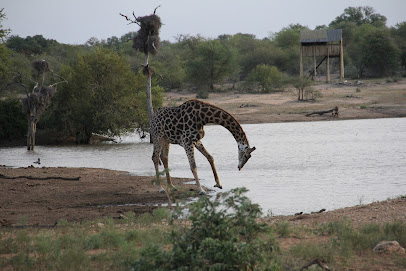
Mathekenyane Hill (Koppie) View Point
Experience breathtaking panoramic views and wildlife encounters at Mathekenyane Hill in the heart of Kruger Park, South Africa's premier safari destination.
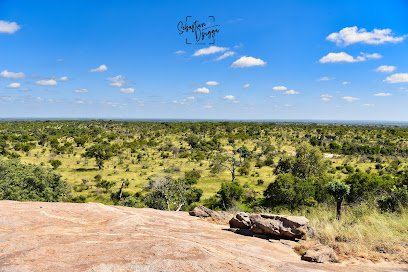
Hoedspruit Endangered Species Centre
Explore the Hoedspruit Endangered Species Centre, a leading wildlife refuge dedicated to conservation and education in the heart of South Africa's biodiversity.
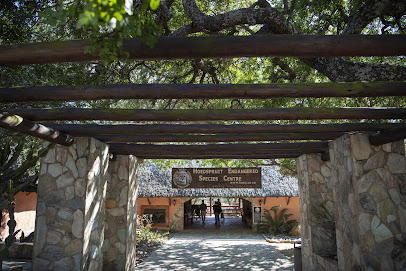
Sabi Sand Nature Reserve
Explore the Sabi Sand Nature Reserve, where adventure meets luxury in the heart of South Africa's wilderness, showcasing incredible wildlife and stunning landscapes.
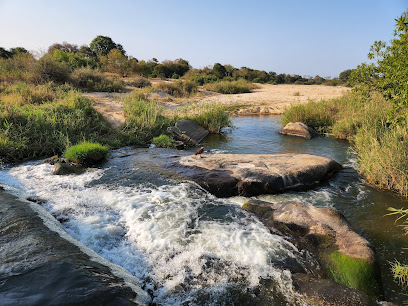
Grietjie Private Nature Reserve
Discover the breathtaking beauty and diverse wildlife of Grietjie Private Nature Reserve, a premier destination for nature lovers and adventure seekers.
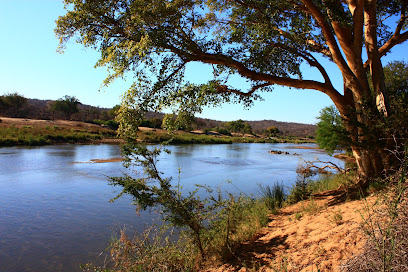
Mooiplaas Picnic Spot
Discover the tranquil beauty of Mooiplaas Picnic Spot in Kruger Park, a perfect escape for nature lovers and picnic enthusiasts alike.
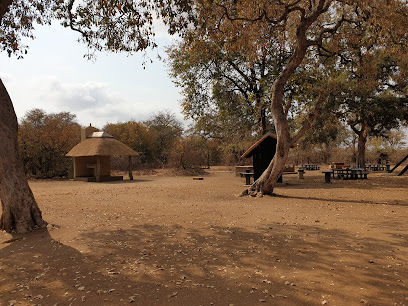
Ingwelala
Discover Ingwelala, a serene nature preserve in South Africa, offering breathtaking landscapes, diverse wildlife, and unforgettable outdoor experiences.
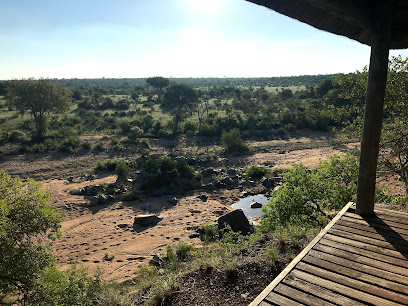
Sable Sleepover Hide
Discover the wild beauty of Sable Sleepover Hide in Kruger National Park, where adventure meets tranquility amidst diverse wildlife and stunning landscapes.
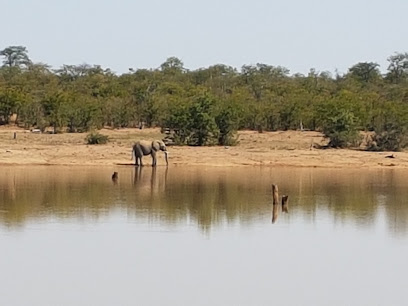
Essential places to dine
Cattle Baron @ Skukuza Camp
Experience exquisite dining at Cattle Baron @ Skukuza Camp in Kruger National Park, where culinary delights meet breathtaking nature.
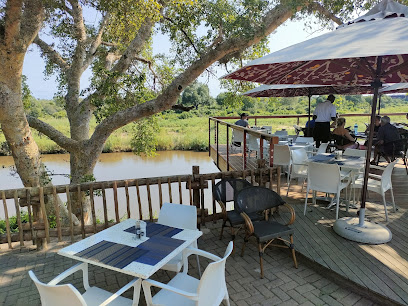
Tindlovu Restaurant Berg-En-Dal Rest Camp
Discover culinary delights at Tindlovu Restaurant in Kruger National Park's Berg-En-Dal Rest Camp, where nature meets flavor.
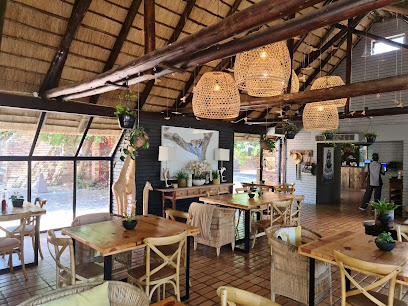
Amazing Kruger View Restaurant
Experience culinary delights amidst stunning wildlife views at Amazing Kruger View Restaurant in Marloth Park.
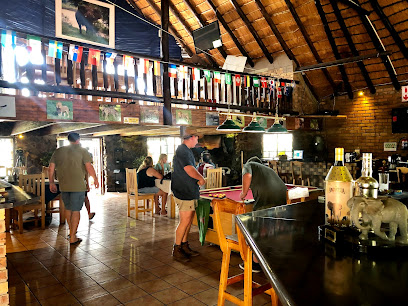
Kuka Restaurant & Cocktail Lounge
Experience culinary excellence at Kuka Restaurant & Cocktail Lounge in Hazyview – where local flavors meet vibrant atmosphere.
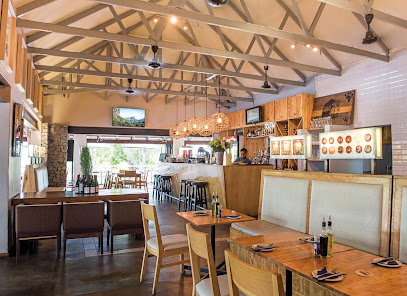
The Hat & Creek
Discover exquisite dining at The Hat & Creek in Hoedspruit - where local flavors meet international cuisine in a cozy atmosphere.
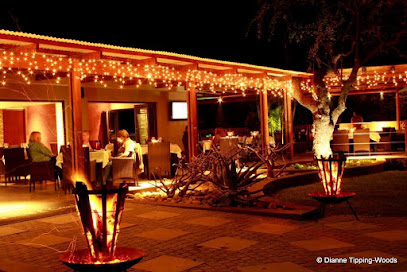
Villa Luso Restaurant
Discover the flavors of South Africa at Villa Luso Restaurant in Phalaborwa – where exquisite cuisine meets welcoming ambiance.
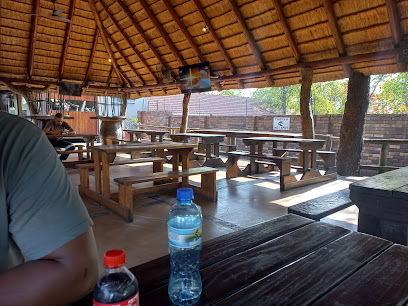
Sleepers Railway Station Restaurant.
Experience South African flavors at Sleepers Railway Station Restaurant in Hoedspruit - where history meets delicious cuisine.
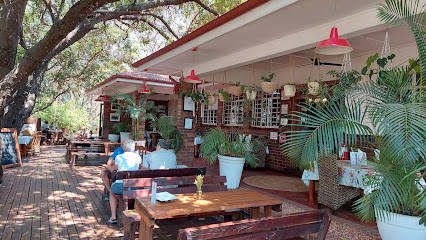
Bushveld Terrace Hotel on Kruger
Experience luxury and nature at Bushveld Terrace Hotel on Kruger - your perfect base for exploring South Africa's iconic wildlife.
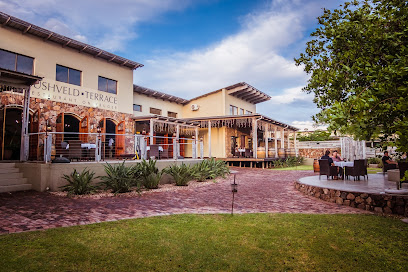
Topolino's Italian Restaurant
Experience authentic Italian cuisine with stunning views at Topolino's Italian Restaurant in Hazyview - a must-visit for all food lovers.
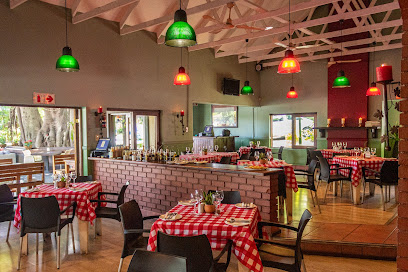
Canimambo Restaurant Graskop
Discover authentic Portuguese cuisine blended with local African flavors at Canimambo Restaurant in scenic Graskop.
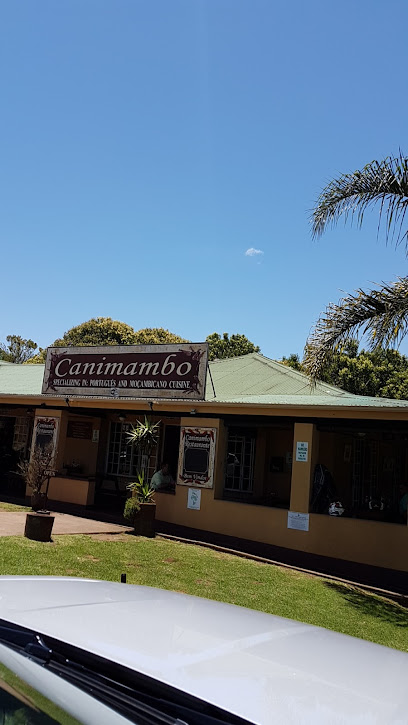
Kruger Station Restaurant @ Skukuza Rest Camp
Experience authentic South African cuisine amidst breathtaking wildlife at Kruger Station Restaurant in Skukuza Rest Camp.
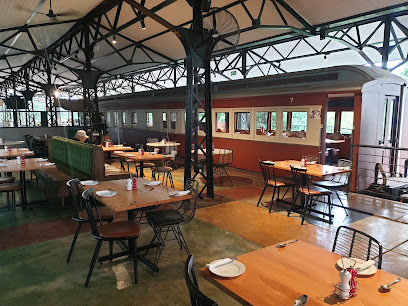
The Thirsty Giraffe Grillhouse and Winebar
Experience exquisite steaks and fine wines at The Thirsty Giraffe Grillhouse and Winebar in Hoedspruit—where flavor meets relaxation.
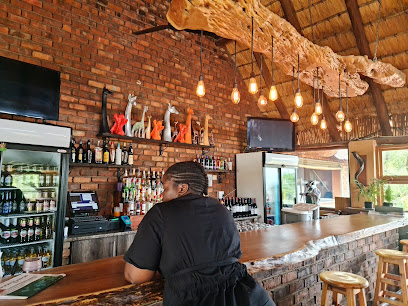
Hamiltons Lodge and Restaurant Malelane
Discover comfort at Hamiltons Lodge & Restaurant in Malelane—your gateway to Kruger National Park's wildlife adventures.

The Deck Restaurant
Discover exquisite dining at The Deck Restaurant with breathtaking views of Kruger National Park – where every meal is a feast for the senses.
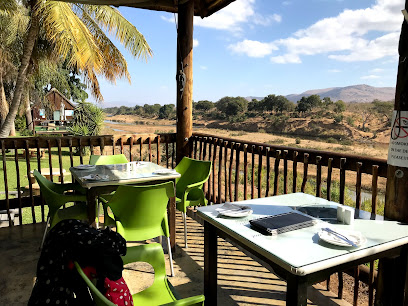
Bushveld Terrace Restaurant on Kruger
Experience family-friendly dining at Bushveld Terrace Restaurant on Kruger, where delicious meals meet stunning bushveld views in Phalaborwa.
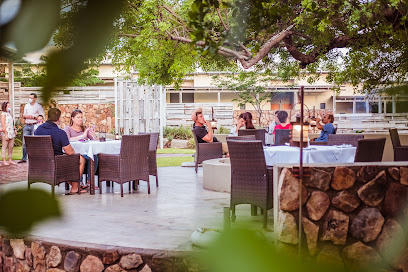
Markets, malls and hidden boutiques
SPAR Kruger Park
Experience the essence of South Africa at SPAR Kruger Park, where local flavors and convenience meet for every traveler.
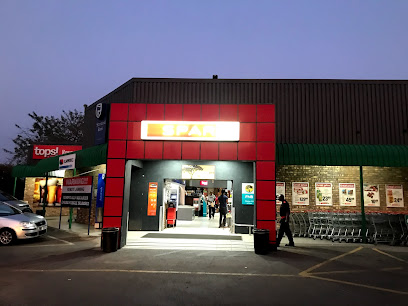
The Parks Shop @ Skukuza Rest Camp
Explore the vibrant selection of locally crafted gifts at The Parks Shop @ Skukuza Rest Camp, a treasure trove of unique souvenirs in Kruger National Park.
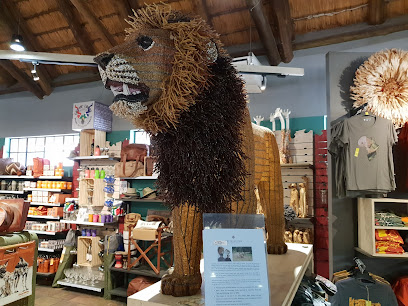
Eden Square Mall.
Discover the ultimate shopping experience at Eden Square Mall in Phalaborwa, where a variety of shops and delightful dining await every visitor.
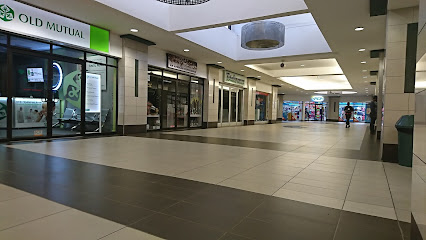
Lifestyle Centre
Discover the Lifestyle Centre, Phalaborwa: Your go-to destination for unique gifts, stylish furniture, and delightful café experiences.
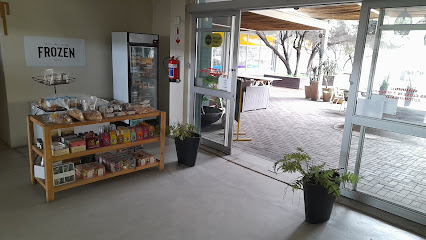
The Park's Shop @ Letaba Restcamp
Discover unique souvenirs and essential supplies at The Park's Shop in Letaba Restcamp, a vital stop on your Kruger National Park adventure.
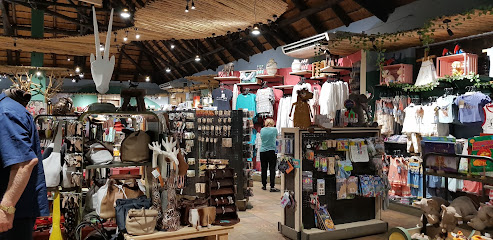
Mr Price Home Phalaborwa
Explore stylish and affordable home goods at Mr Price Home Phalaborwa, your go-to destination for trendy furniture and décor.

African Meraki, Gifts Curios Clothing
Explore the vibrant artistry of South Africa at African Meraki, your go-to gift shop for unique curios, clothing, and memorable souvenirs.
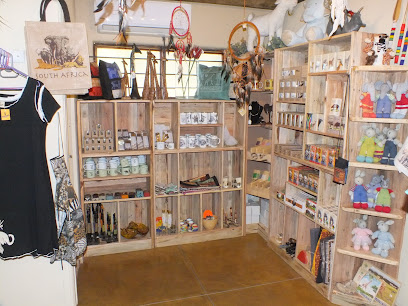
The Crazy Store Phalaborwa
Explore a variety of unique gifts, toys, and home essentials at The Crazy Store Phalaborwa, where shopping becomes an adventure.
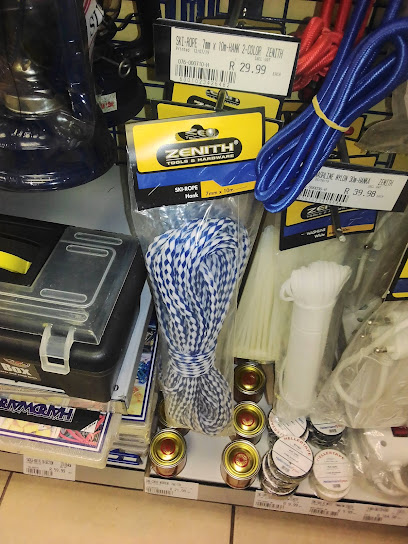
TOPS at SPAR Kruger Park
Discover a wide selection of local wines, craft beers, and soft drinks at TOPS at SPAR Kruger Park, your essential stop for safari refreshments.
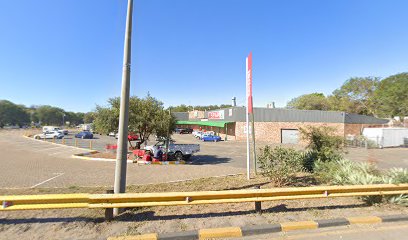
Dunns Ba-Phalaborwa Checkers Centre
Discover stylish clothing for men and women at Dunns Ba-Phalaborwa, located in Checkers Centre, offering a delightful shopping experience.

The Park's Shop (Mopani Camp)
Discover unique local crafts and souvenirs at The Park's Shop in Mopani Camp, an essential stop for every traveler exploring South Africa's natural beauty.
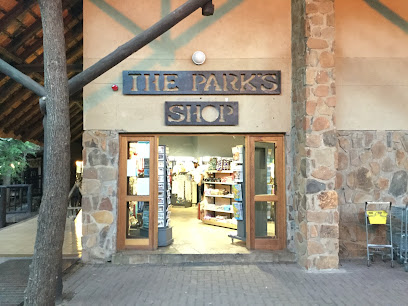
Kruger National Park - Mopani Shop
Experience the convenience of the Mopani Shop in Kruger National Park, your essential stop for safari supplies, snacks, and unique souvenirs.
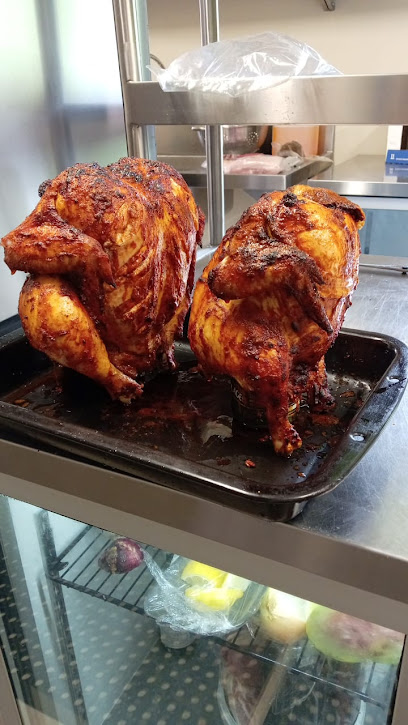
TotalEnergies Olifants Service Station
Experience convenience and comfort at TotalEnergies Olifants Service Station, the perfect stop for travelers in Kruger National Park.
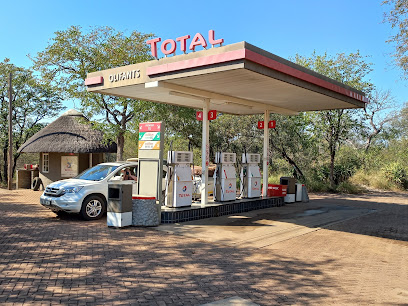
Lebo's gifting and flower shop
Discover the perfect gift and stunning floral arrangements at Lebo's Gifting and Flower Shop in Phalaborwa, South Africa.
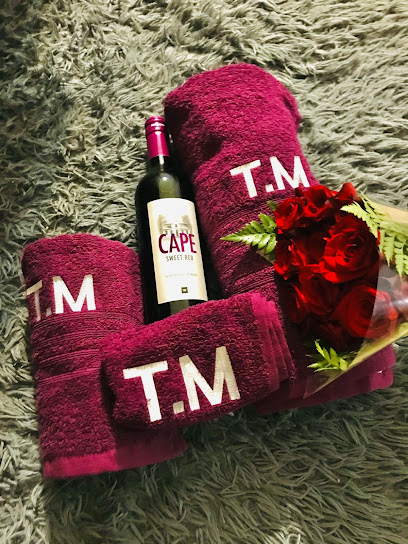
Hlanganani Community Craft & Coffee Shop
Immerse yourself in local culture at Hlanganani Community Craft & Coffee Shop, where unique crafts and delightful coffee await in Kruger Park.
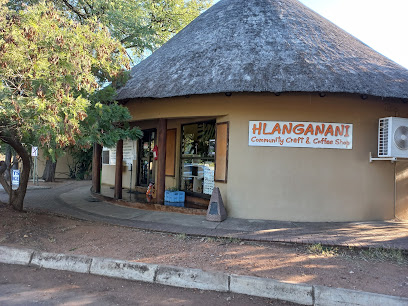
Essential bars & hidden hideouts
Bush Pub & Inn.
Discover the enchanting Bush Pub & Inn in Thornybush Game Reserve, where comfort meets adventure in a breathtaking natural setting.

The Thirsty Giraffe Grillhouse and Winebar
Experience the flavors of Hoedspruit at The Thirsty Giraffe Grillhouse and Winebar, where every meal is a celebration of fine dining and good company.
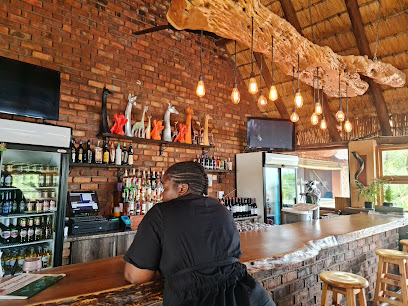
Tindlovu Restaurant @ Letaba Rest Camp
Experience authentic South African cuisine in the heart of Kruger National Park at Tindlovu Restaurant, where nature meets flavor.
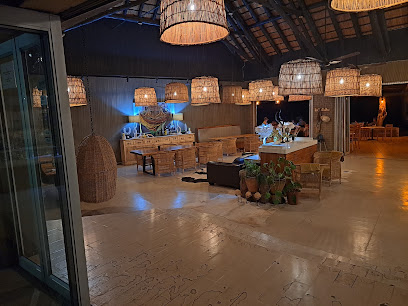
Tindlovu Boskombuis @ Olifants
Experience the wild flavors of South Africa at Tindlovu Boskombuis, a restaurant in the heart of Kruger National Park.
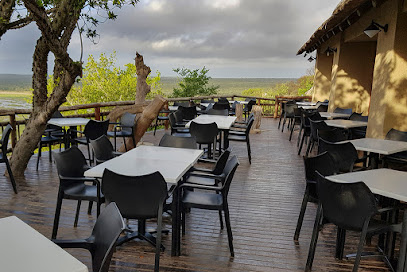
Qualito Craft Distillery
Discover Phalaborwa's artisanal spirit at Qualito Craft Distillery, where handcrafted beverages meet delightful dining in a welcoming atmosphere.
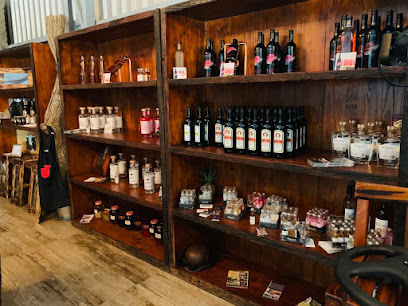
Raptors Sports Bar & Car Wash
Experience the ultimate blend of sports, dining, and car care at Raptors Sports Bar & Car Wash in Phalaborwa.
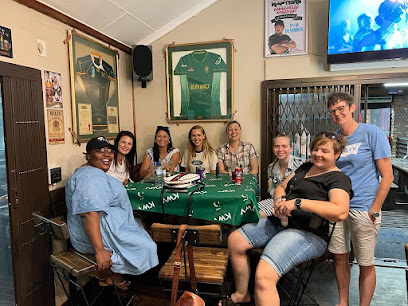
Jam Alley
Discover the lively ambiance and authentic flavors at Jam Alley, Phalaborwa's premier beer hall, where culture and community come together.

S Lounge
Experience the vibrant nightlife at S Lounge, a local bar in Phalaborwa offering a unique blend of drinks and culture.

Rendezvous Bush Bar
Experience the vibrant ambiance and delicious grilled flavors at Rendezvous Bush Bar in Hoedspruit, your gateway to South African culinary delights.

Greenhouse Lulekani Beer Garden
Discover the charm of Greenhouse Lulekani Beer Garden, where local flavors meet a relaxing garden ambiance for an unforgettable experience.

Blouwillebees Bar
Experience the vibrant nightlife of Phalaborwa at Blouwillebees Bar, where great drinks and local charm come together.

Mafahla Tavern
Discover the vibrant nightlife and local culture at Mafahla Tavern in Phalaborwa, where great drinks meet warm hospitality.

Magic By Night Tarven
Experience the vibrant nightlife at Magic By Night Tavern in Phalaborwa, where local flavors and lively ambiance create unforgettable evenings.

Eddies Tarven
Experience the vibrant local culture at Eddie's Tavern in Phalaborwa, where drinks and camaraderie come together in a lively atmosphere.

Local Phrases about Kruger National Park
-
- HelloHallo
[haa-loh] - GoodbyeTotsiens
[toht-see-ens] - YesJa
[yah] - NoNee
[nee] - Please/You're welcomeAsseblief
[ah-suh-bleef] - Thank youDankie
[dahn-kee] - Excuse me/SorryJammer
[yahm-mehr] - How are you?Hoe gaan dit?
[hooh gahn deet] - Fine. And you?Goed. En jy?
[ghoot. ehn yey] - Do you speak English?Praat jy Engels?
[praht yey eng-ehls] - I don't understandEk verstaan nie
[ehk fehr-stahn nee]
- HelloHallo
-
- I'd like to see the menu, pleaseEk wil die spyskaart sien, asseblief
[ehk vihl dee speys-kaart seen, ah-suh-bleef] - I don't eat meatEk eet nie vleis nie
[ehk eet nee flehs nee] - Cheers!Gesondheid!
[guh-sund-hayt] - I would like to pay, pleaseEk wil asseblief betaal
[ehk vee-uhl ah-suh-bleef buh-tahl]
- I'd like to see the menu, pleaseEk wil die spyskaart sien, asseblief
-
- Help!Help!
[help] - Go away!Gaan weg!
[ghahn vehg] - Call the Police!Bel die Polisie!
[behl dee poh-lee-see] - Call a doctor!Bel 'n dokter!
[behl en dohk-tehr] - I'm lostEk is verlore
[ehk is fehr-loh-reh] - I'm illEk is siek
[ehk is seek]
- Help!Help!
-
- I'd like to buy...Ek wil koop...
[ehk vee-uhl kohp] - I'm just lookingEk kyk net
[ehk kuhk neht] - How much is it?Hoeveel kos dit?
[hooh-veel kohs deet] - That's too expensiveDit is te duur
[deet is teh duhr] - Can you lower the price?Kan jy die prys verlaag?
[kahn yey dee preys fehr-lahg]
- I'd like to buy...Ek wil koop...
-
- What time is it?Hoe laat is dit?
[hooh laaht is deet] - It's one o'clockDit is een uur
[deet is ayn oohr] - Half past (10)Half tien
[hahlf teeyen] - MorningOggend
[oh-ghent] - AfternoonMiddag
[mi-daahg] - EveningAand
[ahnt] - YesterdayGister
[gihs-tehr] - TodayVandag
[fahn-dahgh] - TomorrowMôre
[moh-reh] - 1Een
[ayn] - 2Twee
[twee] - 3Drie
[dree] - 4Vier
[feer] - 5Vyf
[fayf] - 6Ses
[sehs] - 7Sewe
[suh-veh] - 8Agt
[ahgt] - 9Nege
[neh-geh] - 10Tien
[teeyen]
- What time is it?Hoe laat is dit?
-
- Where's a/the...?Waar is 'n/die...?
[vahr is en/dee] - What's the address?Wat is die adres?
[vaht is dee ah-drehs] - Can you show me (on the map)?Kan jy my wys (op die kaart)?
[kahn yey may vays (ohp dee kaahrt)] - When's the next (bus)?Wanneer is die volgende (bus)?
[vahn-ehr is dee fuhl-ehn-deh (buhs)] - A ticket (to ....)'n Kaartjie (na ....)
[en kaah-kee (nah)]
- Where's a/the...?Waar is 'n/die...?
History of Kruger National Park
-
Kruger National Park, one of the largest game reserves in Africa, was established in 1898 by the then president of the South African Republic, Paul Kruger. Initially set up as the Sabie Game Reserve, its purpose was to control hunting and protect the diminishing number of animals in the area. The park was later expanded and renamed to honor Paul Kruger.
-
James Stevenson-Hamilton became the first warden of the park in 1902. His dedication and vision played a crucial role in shaping the future of the reserve. He advocated for strict anti-poaching laws and was instrumental in the expansion and development of the park's infrastructure, making Kruger a sanctuary for wildlife.
-
During the Great Depression and World War II, tourism to Kruger National Park saw a significant decline. Despite these challenging times, the park managed to maintain its operations. The park’s resilience during these periods preserved its natural beauty and resources, enabling it to thrive in the post-war era.
-
In the latter half of the 20th century, Kruger National Park underwent significant expansion. In 1991, the park became part of the Great Limpopo Transfrontier Park, an international collaboration with Mozambique's Limpopo National Park and Zimbabwe's Gonarezhou National Park. This initiative aimed to create a massive transboundary conservation area, facilitating the free movement of wildlife across borders.
-
Today, Kruger National Park is at the forefront of modern conservation efforts, employing advanced technologies and strategies to protect its diverse ecosystems. The park is involved in numerous research projects focusing on wildlife biology, ecology, and conservation. Efforts are also being made to engage local communities in conservation, ensuring sustainable development and the preservation of cultural heritage.
-
Kruger National Park is not only a haven for wildlife but also a site of immense cultural importance. The park is home to numerous archaeological sites, including evidence of early human habitation. Rock art, ancient tools, and other artifacts provide insights into the lives of the indigenous peoples who once roamed these lands.
Kruger National Park Essentials
-
Kruger National Park is located in northeastern South Africa. The nearest major airports are OR Tambo International Airport in Johannesburg and Kruger Mpumalanga International Airport in Nelspruit. From Johannesburg, you can drive to the park, which takes approximately 4-5 hours by car. Alternatively, you can take a domestic flight to Kruger Mpumalanga International Airport, which is closer to the park (about 1-hour drive). There are also shuttle services and guided tours that offer transportation directly from Johannesburg to the park.
-
Within Kruger National Park, the most common way to get around is by car. Self-drive safaris are popular, and you can rent a vehicle in nearby cities or at the airport. Guided tours are also available and offer the expertise of a knowledgeable guide. Inside the park, rest camps and lodges may provide shuttle services for guests. Public transportation is not available within the park, so having your own vehicle or booking a tour is essential for getting around.
-
The official currency in South Africa is the South African Rand (ZAR). Credit cards are widely accepted at major lodges, rest camps, and some shops within the park. However, it is advisable to carry some cash for smaller purchases and tips. ATMs are available in larger rest camps, but it is wise to withdraw sufficient cash before entering the park. There are no currency exchange facilities within the park, so exchange your money at the airport or in nearby cities.
-
Kruger National Park is generally safe for tourists, but it is important to follow park rules and guidelines. Do not exit your vehicle in undesignated areas due to the presence of wild animals. Keep windows and doors locked when driving through the park. In terms of crime, the park is relatively secure, but it is best to stay vigilant. Avoid isolated areas and keep your valuables secure. Outside the park, be cautious in urban areas like Nelspruit or Johannesburg, which have higher crime rates.
-
In case of emergency within Kruger National Park, contact the nearest rest camp or lodge, as they have communication systems to reach park authorities. There are first aid stations and medical facilities at major rest camps. For serious medical emergencies, you may need to be evacuated to a hospital in Nelspruit. The emergency number for South African police is 10111, and for medical emergencies, dial 112 from a mobile phone. It is highly recommended to have travel insurance that covers medical emergencies and evacuation.
-
Fashion: Do wear neutral-colored clothing to blend in with the environment. Avoid bright colors and camouflage patterns. Religion: Do respect local traditions and practices if visiting nearby communities. Public Transport: Do use reputable shuttle services or guided tours for transportation. There is no public transport within the park. Greetings: Do greet park staff and fellow visitors with a friendly 'hello' or 'good day.' Eating & Drinking: Do bring your own snacks and water, as facilities can be spread out. Don’t feed the animals or leave food exposed, as it attracts wildlife.
-
To experience Kruger National Park like a local, consider visiting during the off-peak seasons (March to May and September to November) for fewer crowds and better wildlife viewing. Start your game drives early in the morning or late in the afternoon when animals are most active. Engage with park rangers and guides, as they can provide invaluable insights into animal behavior and park history. Don't miss out on night drives and bush walks offered by the park for a unique perspective on the wildlife and landscape.
Trending Landmarks in Kruger National Park
-
Bourke's Luck Potholes
-
Sudwala Caves
-
Lower Sabie Rest Camp
-
Skukuza Rest Camp
-
Crocodile Bridge Rest Camp
-
Letaba Rest Camp
-
Paul Kruger Gate
-
Malelane Gate @ Kruger National Park
-
Kruger Gate Hotel
-
Mopani Rest Camp
-
Shingwedzi Rest Camp
-
Kruger Park Safaris
-
Orpen Rest Camp
-
Orpen Gate Kruger National Park (Reception)
-
Manyeleti Game Reserve
Nearby Cities to Kruger National Park
-
Things To Do in Polokwane
-
Things To Do in Mhlume
-
Things To Do in Matola
-
Things To Do in Maputo
-
Things To Do in Mbabane
-
Things To Do in Manzini
-
Things To Do in Malkerns
-
Things To Do in Big Bend
-
Things To Do in Maxixe
-
Things To Do in Inhambane
-
Things To Do in Pretoria
-
Things To Do in Johannesburg
-
Things To Do in Selebi-Phikwe
-
Things To Do in Masvingo
-
Things To Do in Vilanculos













